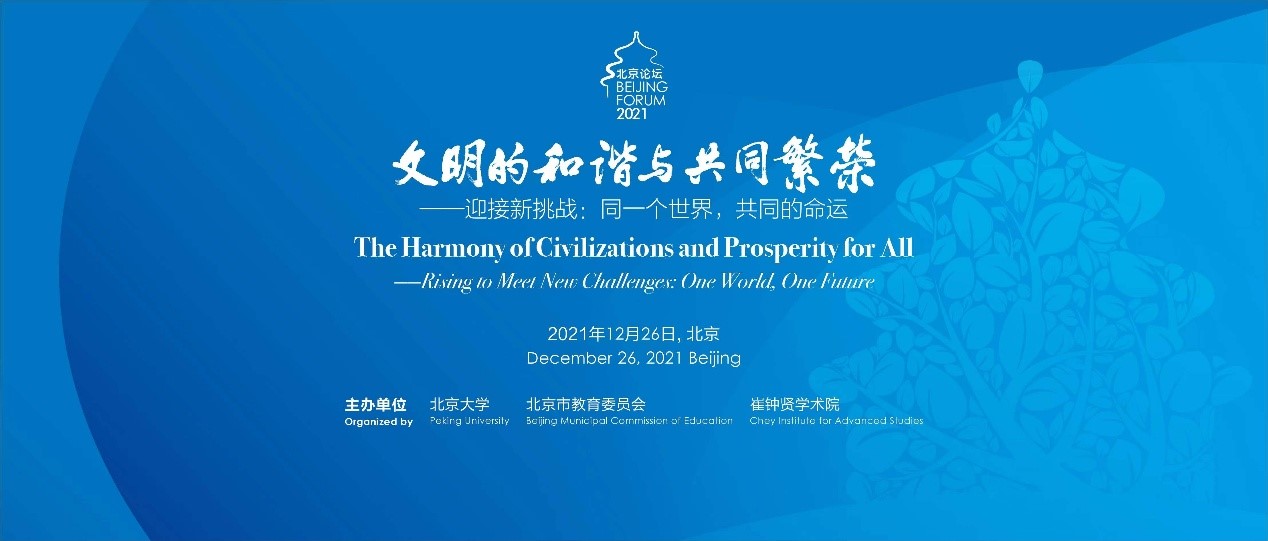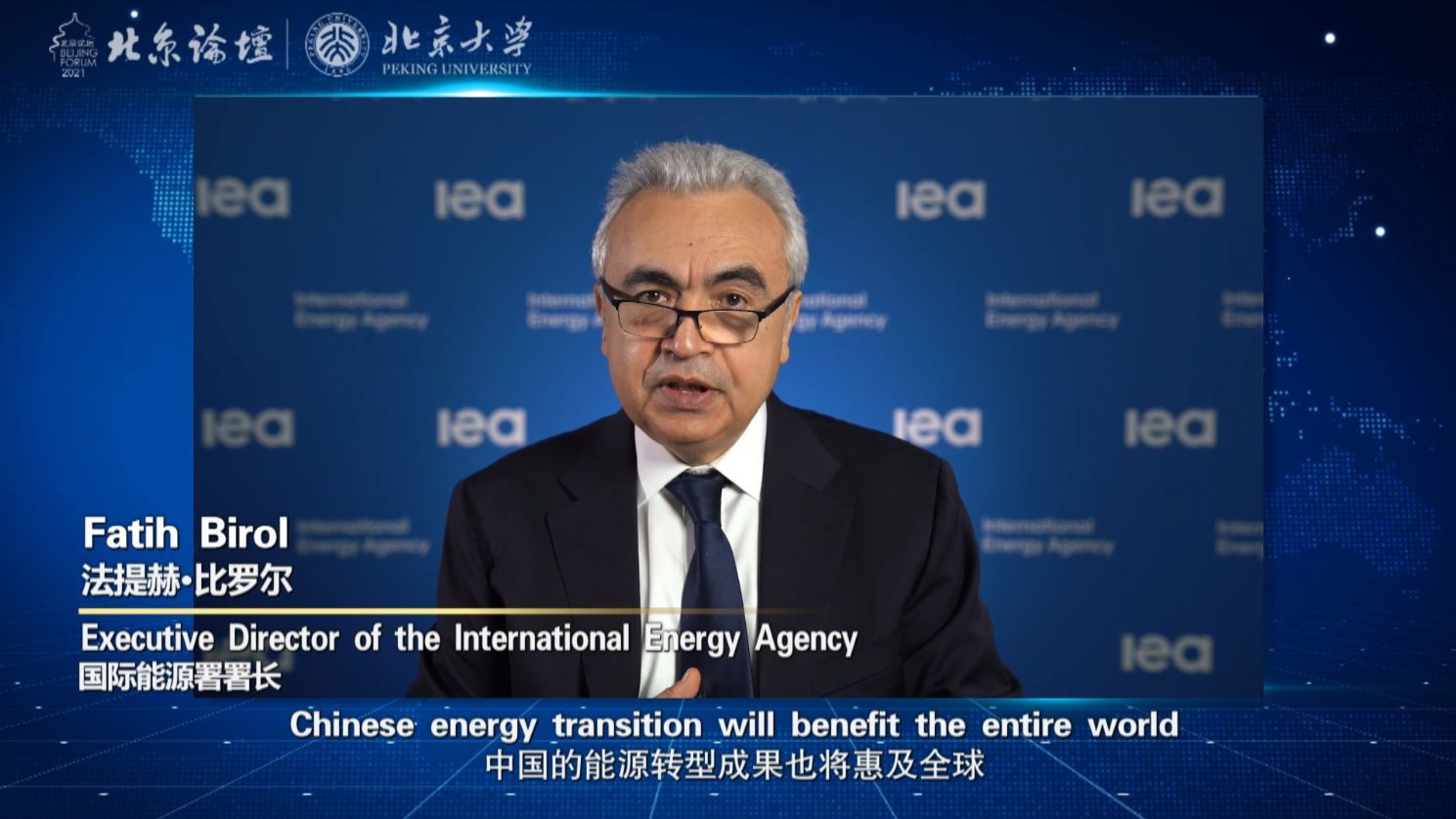Peking University, December 31, 2021: Upon approval of the Chinese Ministry of Education (MOE), the main session of the 18th Beijing Forum, co-sponsored by Peking University (PKU), Beijing Municipal Education Commission and the Korea Foundation for Advanced Studies (KFAS), was held virtually on December 26, 2021. Focused on the theme of “The Harmony of Civilizations and Prosperity for All - Rising to Meet New Challenges: One World, One Future”, personalities and scholars from all over the world were invited to brainstorm on issues of global concern and build this year’s Forum into an academic feast.
Speakers at the main session include: Hao Ping, President of Peking University; Ban Ki-moon, Chairman of the Boao Forum for Asia and the 8th Secretary General of the United Nations; Fatih Birol, Executive Director of the International Energy Agency; and Chey Tae-won, Chairman of SK Group. Wang Bo, Vice President of Peking University, chaired the session.
Hao Ping pointed out that this year’s Forum is of “particularly far-reaching importance”, as it focuses on the new challenges facing humanity and promotes dialogue and exchange among civilizations. Since today’s world is facing the combined impacts of changes unseen in a century and a once-in-a-century pandemic, the concept of a “community of shared future for mankind” has become more and more relevant and valuable. At the new historical starting point, universities will serve as a bridge for international exchange and find the solutions to the major concerns of our times.
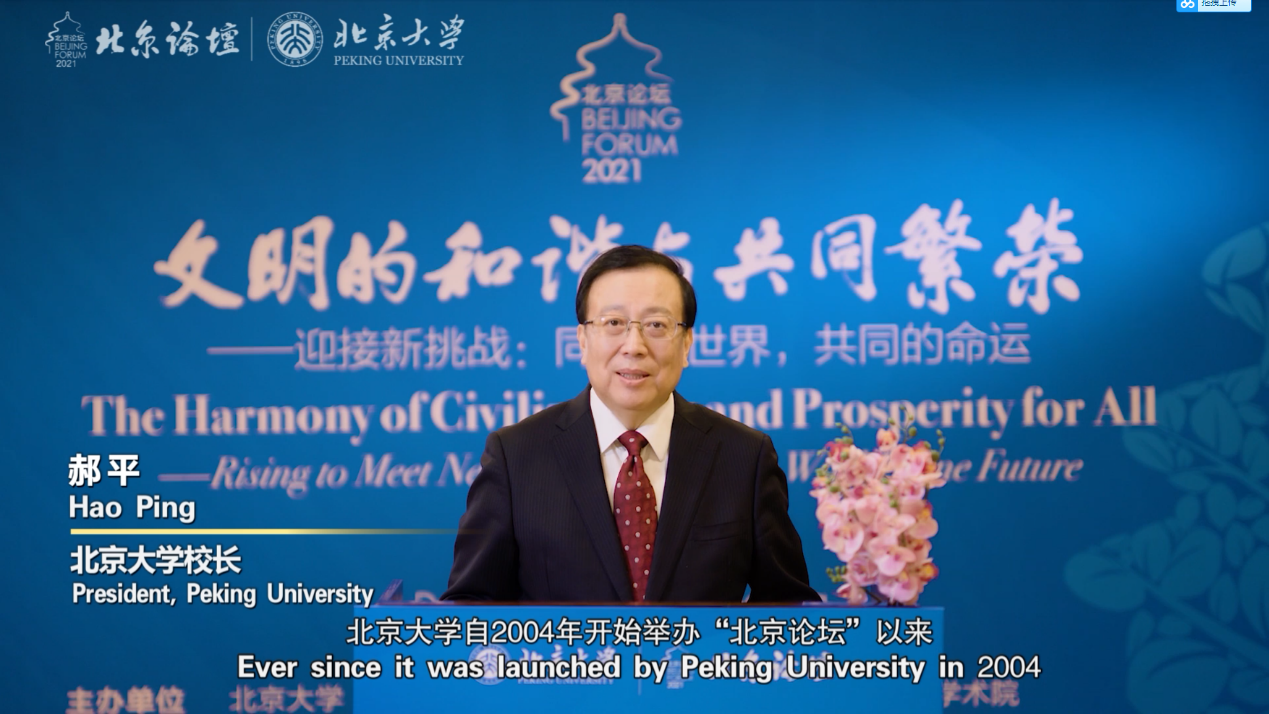
As Ban Ki-moon put it, although we find ourselves at the center of a variety of converging global crises, we need to work together through a driving commitment to health, climate action, sustainability, and the power of partnerships and multilateral cooperation. He strongly believes that as long as we stand united, we will be able to vaccinate the world and fight climate change. He concluded that with the active engagement and efforts of all countries, we would gradually achieve the UN Sustainable Development Goals and usher in a bright new era of harmony of civilizations and prosperity for all.
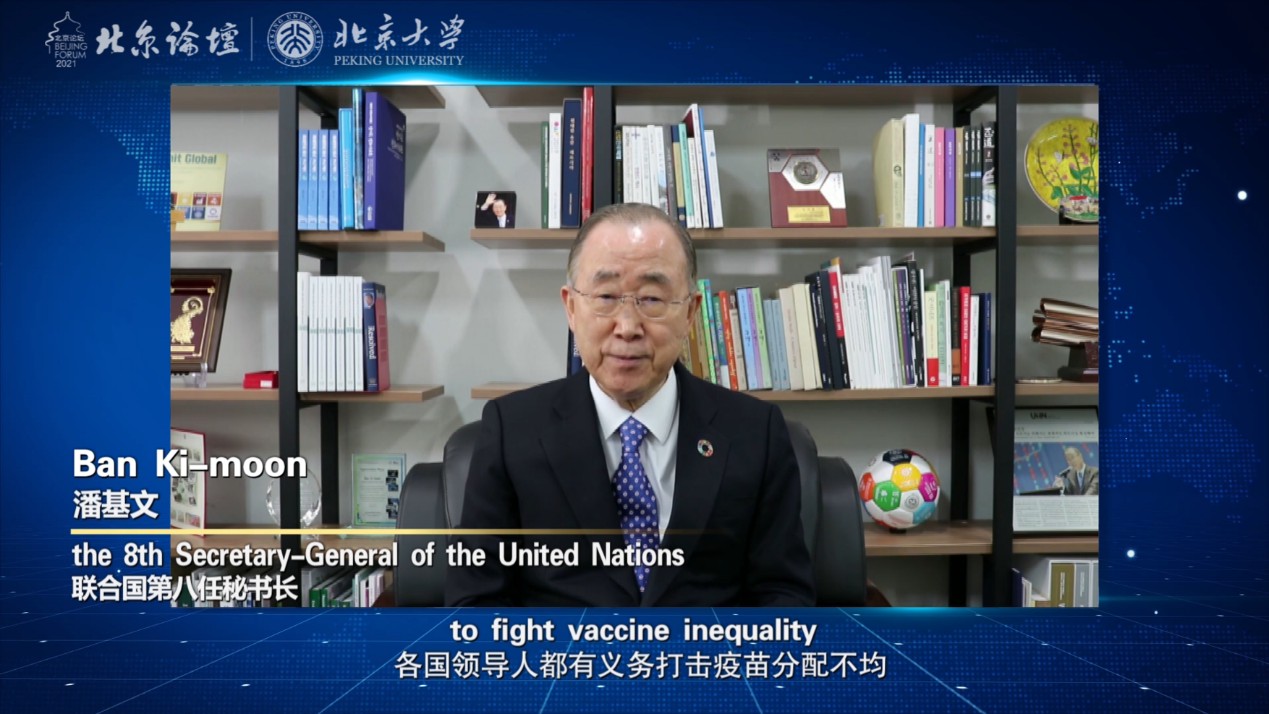
In his speech, Fatih Birol lauded China’s efforts in sustainable energy development. China, he claimed, is the biggest country for solar power, wind, hydro, and electric vehicles. Developments in these fields have created new industries and jobs, and brought down the cost of clean energy technologies not only in China, but for everyone. He added that China’s accelerated energy transition would result in greater social and economic benefits for people across the world.
Chey Tae-won thanked Peking University and the Chey Institute for Advanced Studies (CIAS) for putting together this year’s Forum. He argued that we would be managing the hangover from the COVID-19 pandemic for years to come, in the form of economic turmoil and a wider public health backlog. On the other hand, the pandemic is a formidable catalyst for technological and digital advancement; the incredible breakthroughs in these fields are disrupting our businesses and daily lives.
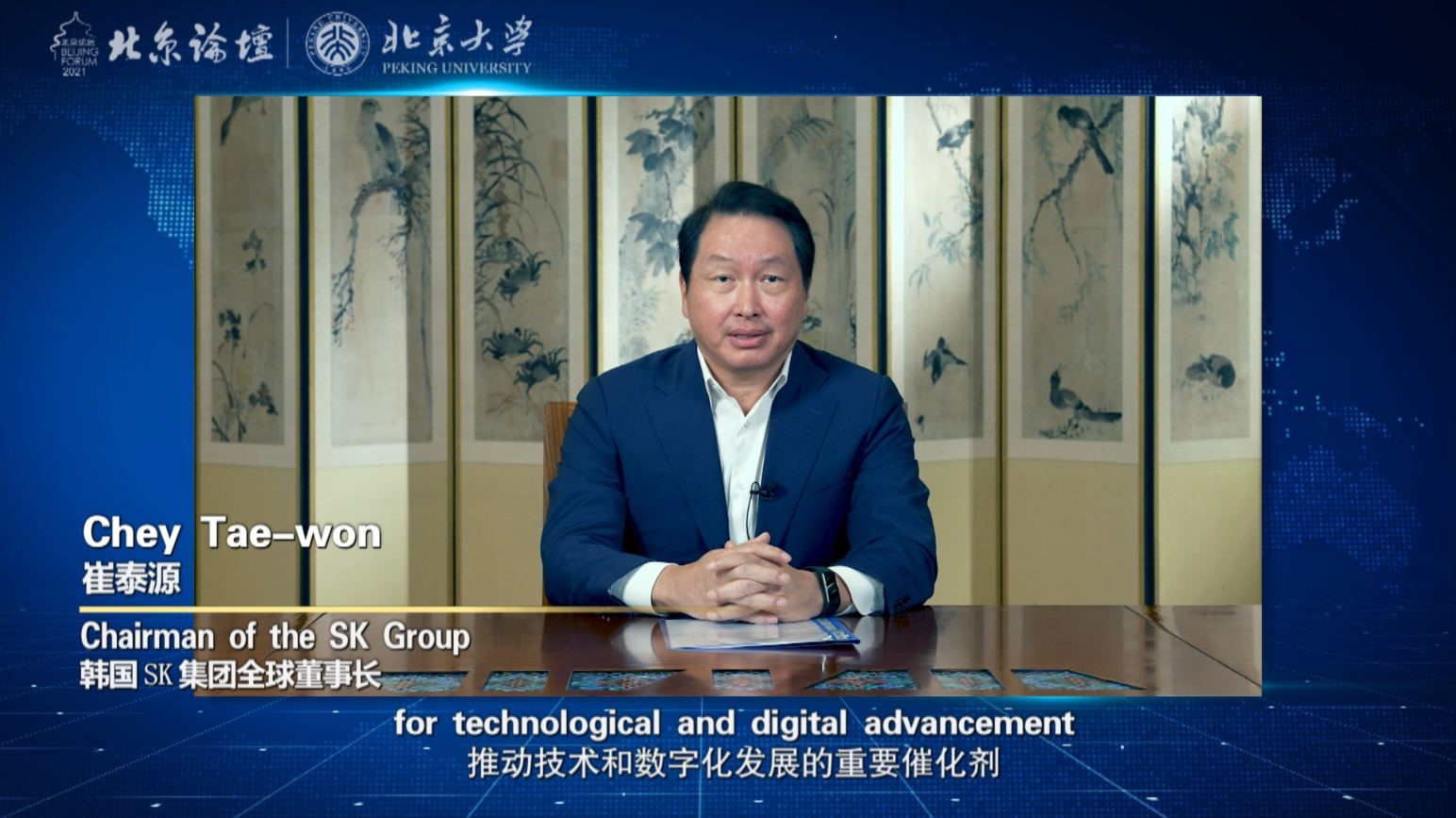
Keynote speakers at the main session are: Roger T. Ames, Humanities Chair Professor in the Department of Philosophy at Peking University, President of the World Consortium for Research in Confucian Cultures, and Vice President of the International Confucian Association; Du Xiangwan, a member and Former Vice President of the Chinese Academy of Engineering, Deputy Director of the National Energy Advisory Expert Committee, and an advisor to the National Expert Committee on Climate Change; Qiao Jie, a member of the Chinese Academy of Engineering, Executive Vice President of Peking University, and President of the Peking University Health Science Center; and Jeffrey Sachs, University Professor at Columbia University and Director of the University’s Center for Sustainable Development, and President of the UN Sustainable Development Solutions Network.
Through an analysis on Confucian concepts such as “family” and “diversity in harmony”, Roger T. Ames explained the core ideas and contemporary values of Chinese philosophies. He hopes the international community can understand the Chinese culture more accurately, and respond to the global predicament more effectively by jointly building a shared humanity.
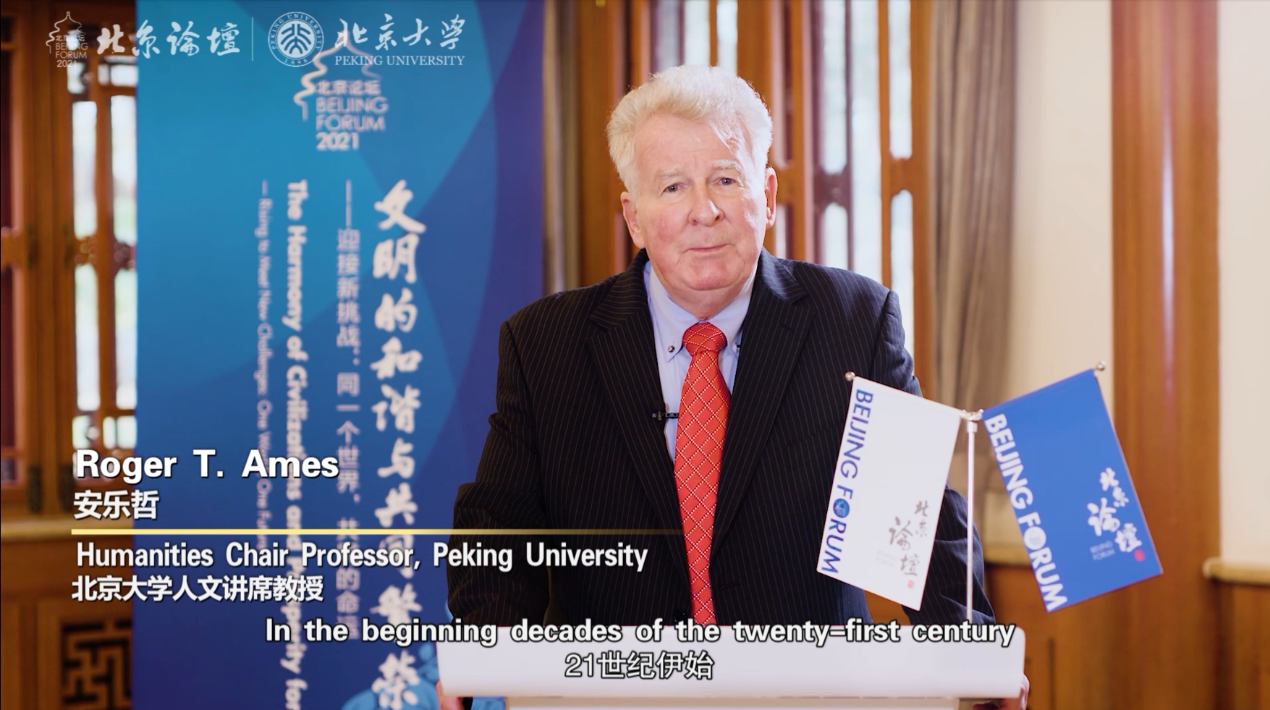
Du Xiangwan noted that the proposition of the “dual carbon” goals is of great significance. It guides China’s efforts in the phased and prompt implementation of low-carbon transformation, profoundly promotes the economic and social progress of our country, and demonstrates the positive attitude of a responsible power in tackling climate change. He emphasized that the “dual carbon” goals are the embodiment of the complete, accurate, and comprehensive implementation of the new development concept, i.e. a goal put forward based on the national conditions of our country. It will bring new investment, new technology, new industries, new transportation, new buildings, and new energy, in short, a new development method, which will profoundly promote economic and social progress.
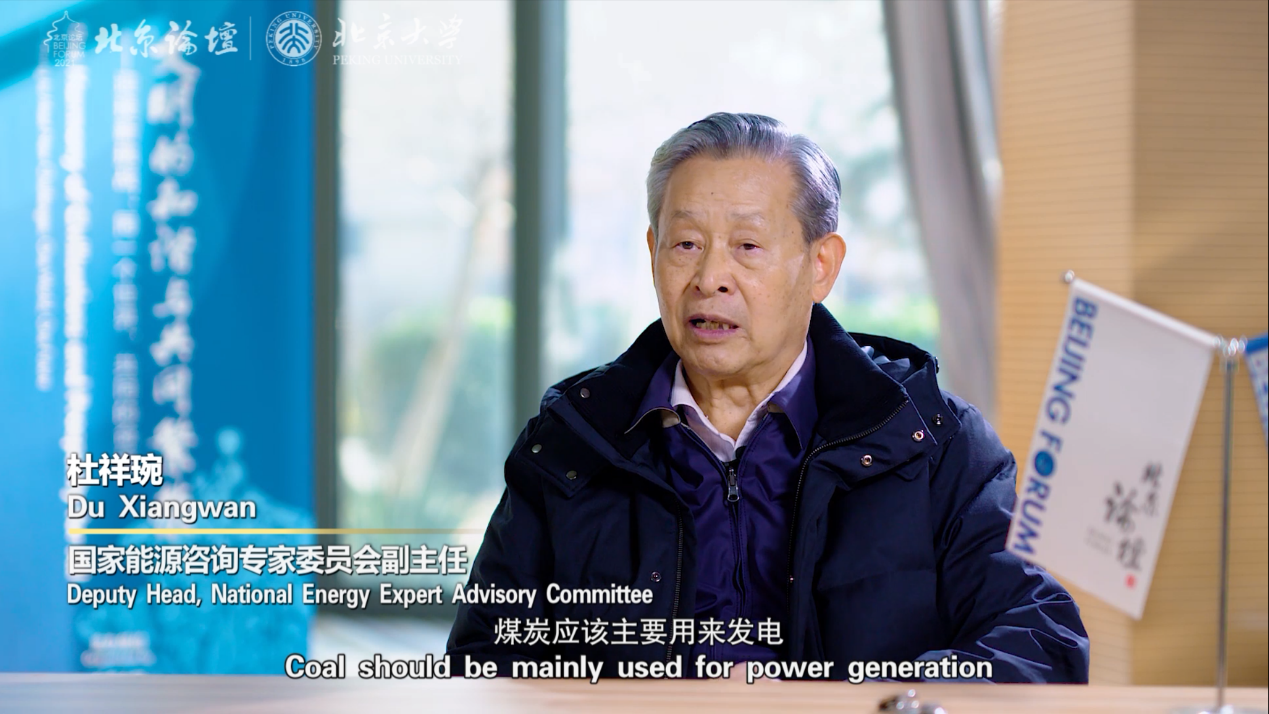
Qiao Jie explored how to facilitate the protection of health at the origin of life. Currently, human society is facing serious health challenges, including population ageing, chronic disease prevention and control, declining births and fertility levels, and birth defects. To top it all, the current pandemic has severely impacted maternal and child health globally. All of these require governments to urgently activate response systems and strengthen interregional cooperation to meet the challenges and preserve life and health.
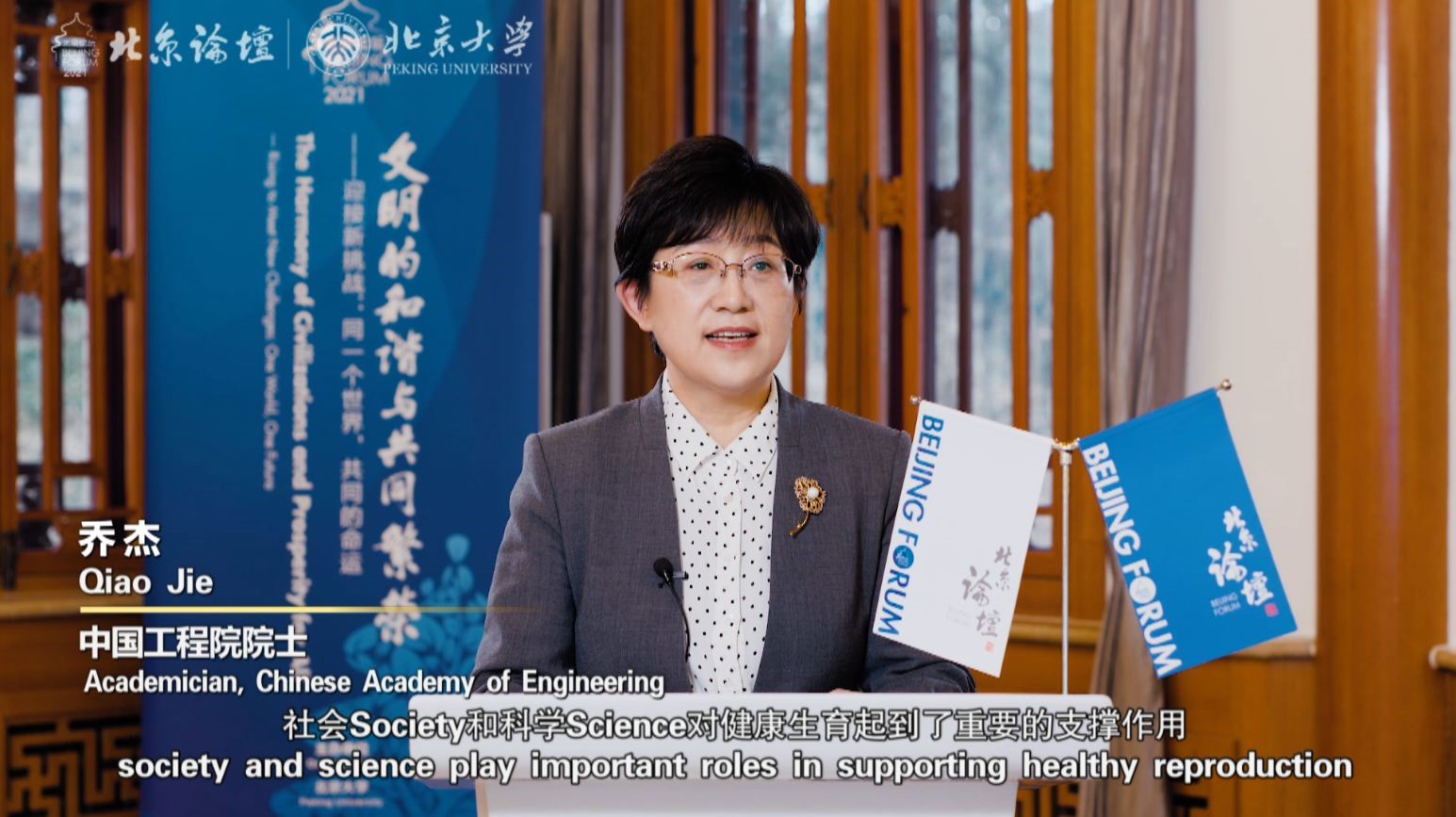
Jeffrey Sachs shared some thoughts on the important question of how the world can reinvigorate the fight against extreme poverty in the wake of the COVID-19 pandemic. He appreciated China’s achievements in poverty alleviation. Starting in 1980, China adopted a trajectory for a remarkably rapid transformation from extreme poverty, to becoming one of the most innovative and rapidly growing parts of the world, and, of course, ending extreme poverty in 2020. China’s success over that 40-year period is not only a proof of concept that extreme poverty can be ended, but also a roadmap for sub-Saharan Africa and for other poor regions of the world on how to escape from poverty. He looks forward to China’s continuing global leadership in helping to share the success and the wisdom of China's own development with other parts of the world.
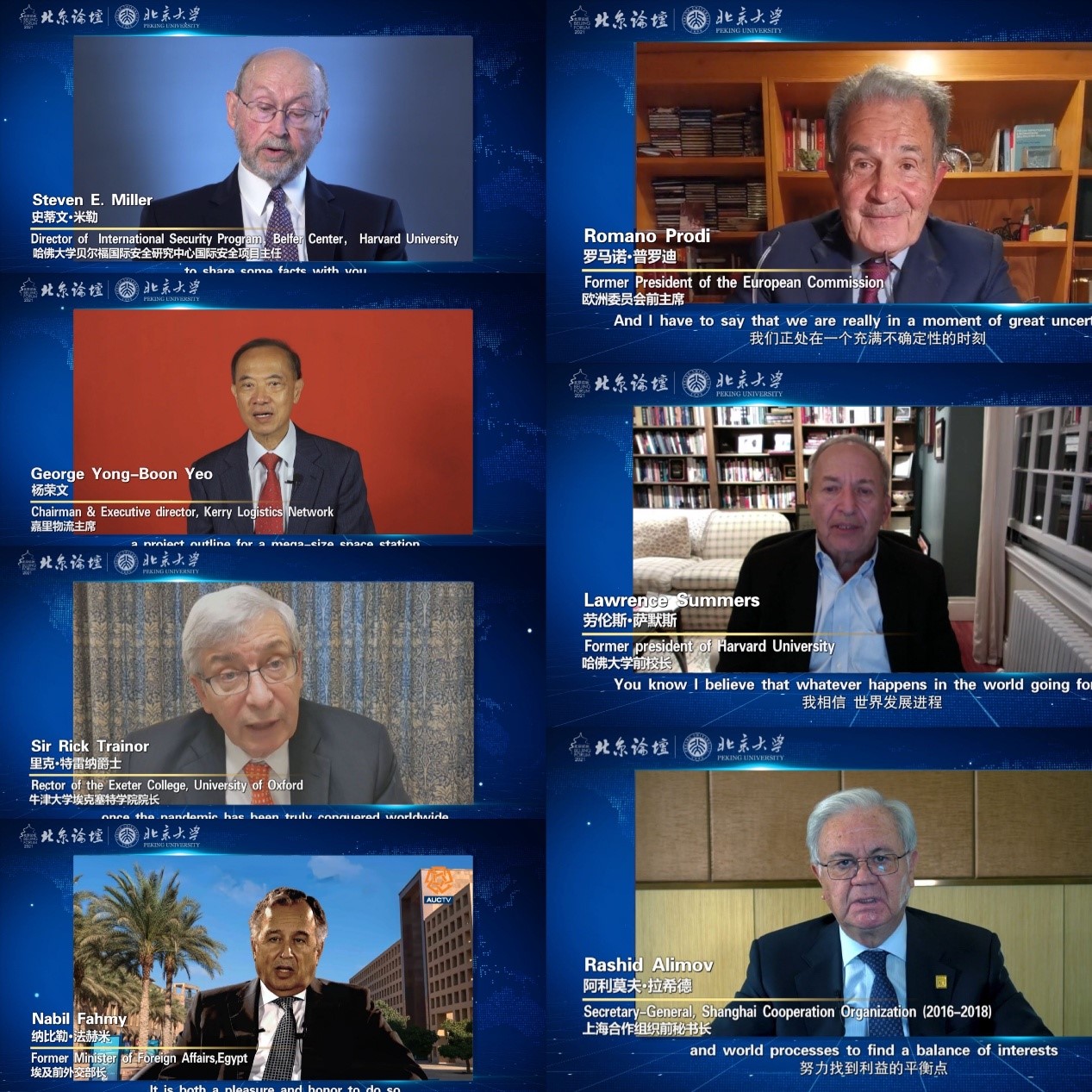
Lawrence Summers, Former US Secretary of the Treasury and Former President of Harvard University; Romano Prodi, Former Prime Minister of Italy and Former President of the European Commission; Rashid Alimov, Former Secretary General of Shanghai Cooperation Organization and a senior diplomat of Tajikistan; George Yeo, Former Singaporean Foreign Minister and Chairman of Kerry Logistics Network; Steven E. Miller, Editor-in-Chief of the scholarly journal, International Security, Director of the International Security Program in the Belfer Center for Science and International Affairs at Harvard University; Sir Rick Trainor, Rector of Exeter College, University of Oxford; and Nabil Fahmy, Former Egyptian Foreign Minister and Founding Dean of the School of Public Affairs of the American University in Cairo, sent congratulations on the opening of the Forum.
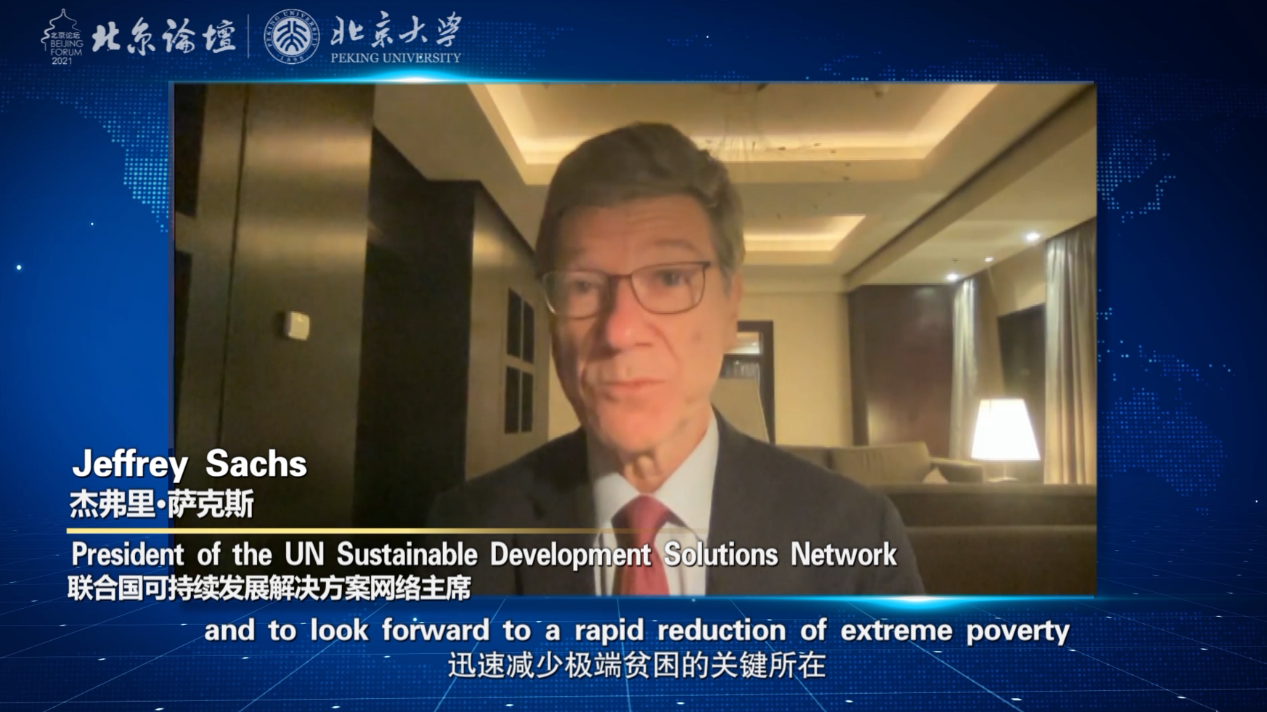
Since August 2021, the 18th Beijing Forum has successively held 10 panel sessions and one special session. The themes of the sessions include: “Interdisciplinary Dialogue: China and the World in the past Century”, “Knowledge Dissemination and Mutual Learning among World Civilizations”, “Globalization and Multilateralism in the Post-COVID 19 Era”, “Institutions and Governance: Comparative Experiences and the China Stories”, “Pathways to Decarbonizing Cities”, “Climate, Environment, and Health”, “Science Lights up the World”, “Measuring Corporate Social Value”, “Narcissus Looks for Echo: Reconstructing the Context of Life”, “The World of Zhuangzi and Zhuangzi in the World”, and “Future-oriented Transnational Higher Education in Asia”. Focused on the post-pandemic world, the sessions built a platform for interdisciplinary discussions, facilitated the integration of Chinese and international experiences in governance, and drew on the power of history to promote extensive international cooperation. At the sessions, global experts and scholars conducted in-depth discussions on how countries of different civilizations could cooperate for mutual benefits and learn from one another within a community of shared future for mankind. Expanding on the general theme of “The Harmony of Civilizations and Prosperity for All”, these guests strived to pass along the flame of peace, build on the momentum of development, and let the light of civilizations shine.
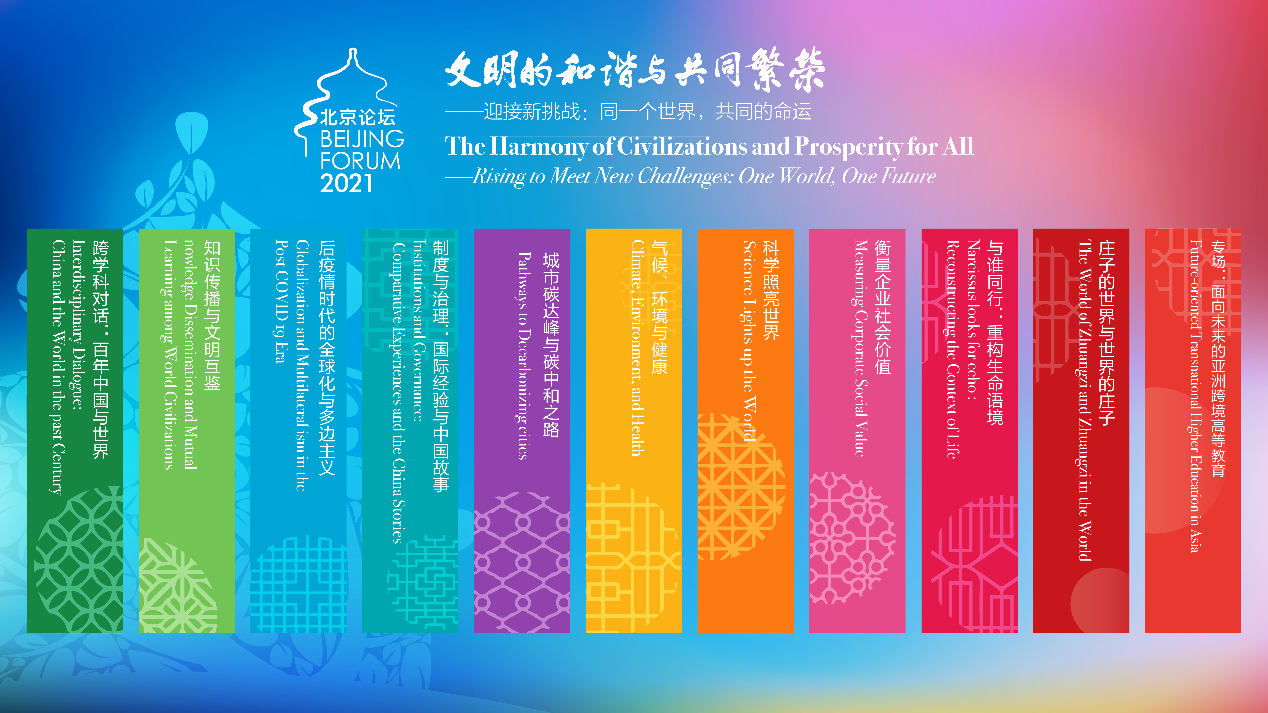
About Beijing Forum
Initiated in 2004, Beijing Forum has been held annually for 18 times. So far, over 7,000 noted scholars and leading figures from more than 80 countries and regions around the world have attended the Forum. The general theme of the Forum is “The Harmony of Civilizations and Prosperity for All”. Leveraging the capital city’s profound cultural heritage, the Forum endeavors to promote academic development and social progress across the world in order to help build a community of shared future for mankind. The Forum believes that the intersection of different civilizations in a peaceful environment is always a source of power and a fundamental guarantee for the progress of human society.
Edited by: Ye Yimeng
Source: Beijing Forum Secretariat
